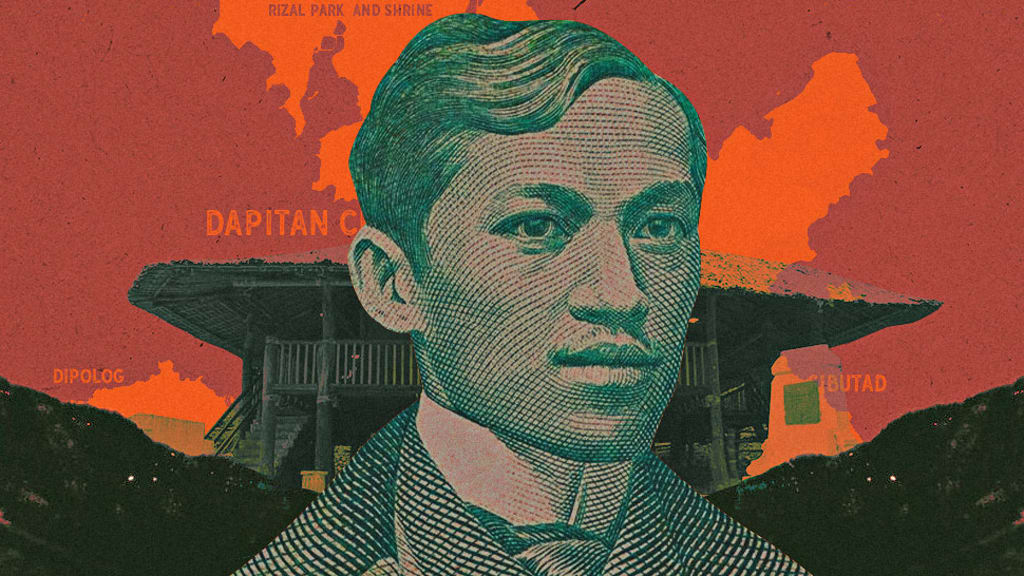OPINION | ‘Look what you made me do’: A study on Rizal’s justification of the existence of Filipino indolence and its roots
Analysis on the Indolence of The Filipino by José Rizal

The Indolence of The Filipino by José Rizal
“We must confess that indolence does actually and positively exist there; only that, instead of holding it to be the cause of the backwardness and the trouble, we regard it as the effect of the trouble and the backwardness, by fostering the development of a lamentable predisposition.” — José Rizal, 1890.
The text was quoted from “The Indolence of the Filipino” (Sobre la indolencia de los Filipinos in Spanish translation), a sociopolitical essay that was published by La Solidaridad in Madrid, year 1890. This was written by the Philippines’ National Hero, Dr. Jose Rizal in response to claims that Filipinos are lazy. By presenting the truth, he hoped to alert the Filipinos to Spain’s corrupt and overpowering colonization system. Thus, he wrote it as part of his ongoing campaign for Filipino accessible education.
I was intrigued while reading this 36-page paper as Rizal stresses the root cause of the existing indolence of the Filipino people during the regime of Spain’s occupation to the nation. This particular quote above snagged my attention because I thought Rizal would have argued on the indolence accusation, but instead, he acknowledged it rather than denouncing it.
This line was penned by Rizal in an effort to explain why the Filipino people struggled to thrive during the Spanish colonization. Rizal believed that Filipinos were NOT naturally lethargic; laziness is not something that we inherit, rather, this existing indolence was caused by the way the Spaniards, and — to a certain extent, some Filipino elites treated the natives.
Rizal was implying that the seed of this assertion is rooted in the years of colonization in our country. These invaders are tagging Filipino as lazy without realizing that they are accountable for such actions.
He noted that the Filipinos were hardworking and dedicated long before the arrival of the Spaniards. But due to a number of factors, the Spanish era saw a drop in economic activity. For the Filipino people, starting over was challenging after the war and oppression. Factors include taxes, gambling, and forced labor.
Filipino indolence as an effect of colonization
As from what I have digested from Rizal’s essay, the following are the factors explaining Filipino indolence during that era:
First, the term “indolence” has frequently been used incorrectly to refer to a lack of passion towards work and a lack of energy that has hidden the overuse.
Because of the usage of forced labor, Spain eliminated the desire for work among the natives. Filipinos were forced to leave their jobs in agriculture, manufacturing, and trade in order to work on public projects like roads and battleships.
The tyrants of Spain set a poor example by demeaning manual labor. The high-ranking officials arrived at work at midday and left early, performing no work-related tasks in the course of the day. The women were spotted being continually followed by servants who clothed and fluffed them, taking care of personal tasks that they should have completed on their own. Furthermore, gambling emerged and widely spread during that time. There were cockfights almost every day, and on feast days, the government officials and friars were the first to take part in various betting and gambling activities.
Second, because of the high taxes, a sizable amount of the Filipinos’ earnings went to the government or the friars. They were driven to inaction when the product of their labor was taken away and they were taken advantage of.
Next, the weather in the country is the third factor. Rizal acknowledged that because the Filipinos were able to adapt to the hot and tropical climate, they were spared from having to work that hard.
He notes that the hot weather has a natural tendency to make people lazy. Europeans, who live in colder environments and must put in considerably more effort at work, cannot be compared to Filipinos. He implies that working for an hour in the Philippine sun is similar to working for a day in a temperate area.
Fourth, Spain refused to protect the Filipinos against outside invaders and pirates. Hence, they lacked the means to defend themselves, the locals were killed — massacred, their homes were set on fire, and their fields were destroyed. As a result, the Filipinos fell prey to nomadism and lost interest in farming their land or in restarting the businesses that had been destroyed. Instead, they just surrendered to God’s compassion.
Finally, there was a flawed educational system. Repetitive prayers and other courses that learners could not use to propel the nation were being taught in the classrooms. When the Philippines most needed them, there were no courses offered in agricultural, industrial, or other disciplines. There was also a corrupt religious structure. The friars had convinced gullible Filipinos that it was simpler for a poor person to enter heaven, henceforth they opted to forego employment and refrain from working and continue to live in poverty before passing away.
In conclusion, it is crucial to understand that indolence is a chronic illness, not an inherited trait or hereditary in the Philippines. Before the Spaniards landed on the island, the Filipinos were actively negotiating with China, Japan, Arabia, Malaysia, and other Middle Eastern countries. Dr. Jose Rizal’s essay presented straightforward justifications for the alleged idleness of Filipinos and substantiated them with historical facts rather than mere hypotheses.
About the Creator
Precious Altura
Audentes Fortuna Iuvat. #DefendPressFreedom! | LinkedIn: precious-altura
Enjoyed the story? Support the Creator.
Subscribe for free to receive all their stories in your feed. You could also pledge your support or give them a one-off tip, letting them know you appreciate their work.






Comments
There are no comments for this story
Be the first to respond and start the conversation.